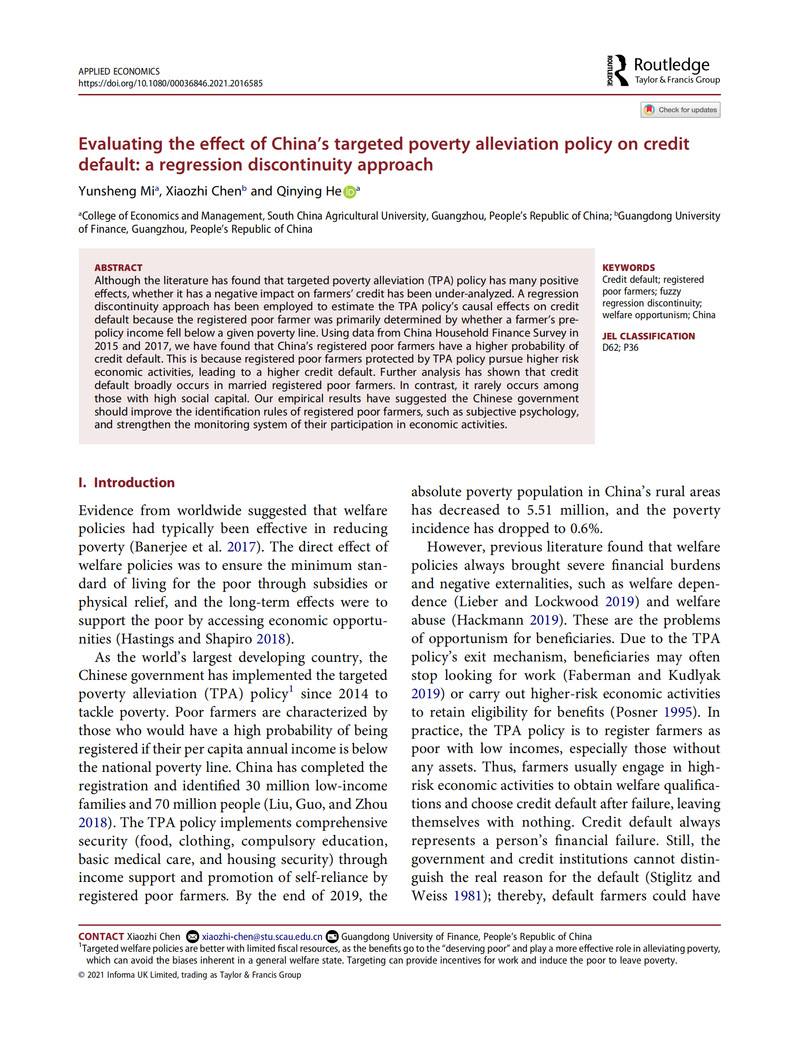出版时间: 2022,Volume 54,Issue 31
DOI: 10.1080/00036846.2021.2016585
摘 要
Although the literature has found that targeted poverty alleviation (TPA) policy has many positive effects, whether it has a negative impact on farmers’ credit has been under-analyzed. A regression discontinuity approach has been employed to estimate the TPA policy’s causal effects on credit default because the registered poor farmer was primarily determined by whether a farmer’s pre-policy income fell below a given poverty line. Using data from China Household Finance Survey in 2015 and 2017, we have found that China’s registered poor farmers have a higher probability of credit default. This is because registered poor farmers protected by TPA policy pursue higher risk economic activities, leading to a higher credit default. Further analysis has shown that credit default broadly occurs in married registered poor farmers. In contrast, it rarely occurs among those with high social capital. Our empirical results have suggested the Chinese government should improve the identification rules of registered poor farmers, such as subjective psychology, and strengthen the monitoring system of their participation in economic activities.
关键词
Credit default; Registered poor farmers; Fuzzy regression discontinuity; Welfare opportunism; China

基金资助:
This work was supported by the Keystone Project of the National Social Science Fund of China under [Grant No. 19ZDA115].
责任编辑:董晓玲
审 定:黄 松